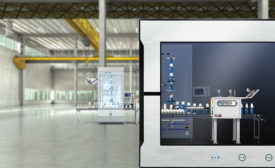Home » Keywords: » packaging technology
Items Tagged with 'packaging technology'
ARTICLES
Mergers & Acquisitions
Technology
Three Success Factors for Smart Connected Packaging
Transitioning to this new packaging paradigm has challenges. High among them are maintaining quality and cost control. There are, however, three success factors that can help mitigate risks.
November 3, 2022
Automation
The Future of Human Machine Interfaces 4.0
With touch displays, remote control and other advances, HMIs are now a part of everyday machines.
March 12, 2021
ADVERTISEMENT
The Promise of Connected Packaging: From brand protection to consumer engagement
An unfolding revolution in digital packaging creates a trifecta of opportunity for brand owners
September 14, 2020
Automation
Giving the Human-Machine Interface a More Human Touch
There are more opportunities for machinery to respond directly to input from human operators.
January 16, 2020












